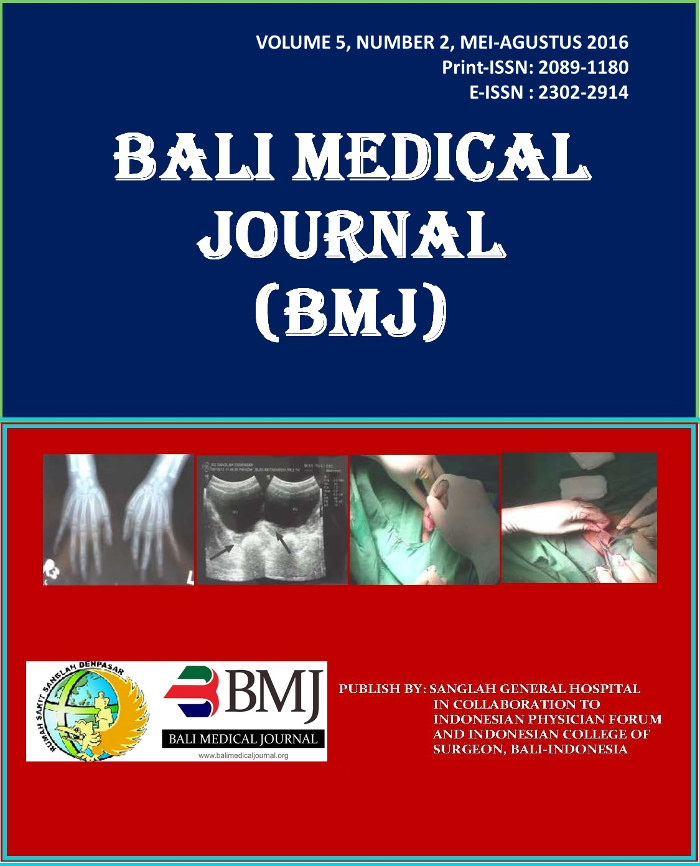Lactate Clearance: Predictor for Mortality and Therapeutic Response on Severe Sepsis Patient
Abstract
Background: Severe sepsis and septic shock are at high mortality rate. This high mortality persists as important aspect in the term of patient treatment which take account in determining aggressiveness of relevant therapy. Lactate level consideration was considered important among patient under shock, septicemia, post-operative, acute lung injury, and critical condition. Lactate concentration in static blood was widely studied and suggested as prognostic value among severe sepsis and septic shock patient due to the nature of lactate as the result of anaerobic metabolism. Several study documented the use of lactate as prognostic indicator for shock condition. The increase of lactate concentration could be useful as the indicator of inadequate oxygen delivery and the existence of anaerobic metabolism. Lactate clearance investigation is more superior therapeutic target compared with others oxygen derivate variables. Methods: This research is a cohort observational study involving secondary data which was collected from laboratory examination results of study subjects. The research held from August 2015 to December 2015 in Digestive Division, Surgery Department, Hasan Sadikin Hospital. 42 patient involved in this study. Results: Comparative test results revealed significant lactate clearance based on mortality in LCH (6) (p = 0.000) and H (24) (p =0.000) as well. The level of LC H (6) and H (24) seemed lower in died patient compared with life patient. Conclusion: This study concluded that lactate clearance in died patient was lower in comparison with life patient.Downloads
Download data is not yet available.
Published
2016-06-27
How to Cite
SIREGAR, Edwin Saleh; PURNAMA, Andriana; RUDIMAN, Reno.
Lactate Clearance: Predictor for Mortality and Therapeutic Response on Severe Sepsis Patient.
BALI MEDICAL JOURNAL, [S.l.], v. 5, n. 2, june 2016.
ISSN 2302-2914.
Available at: <https://ojs.unud.ac.id/index.php/bmj/article/view/21956>. Date accessed: 13 feb. 2026.
Issue
Section
Articles
Keywords
sepsis, lactate clearance, mortality


